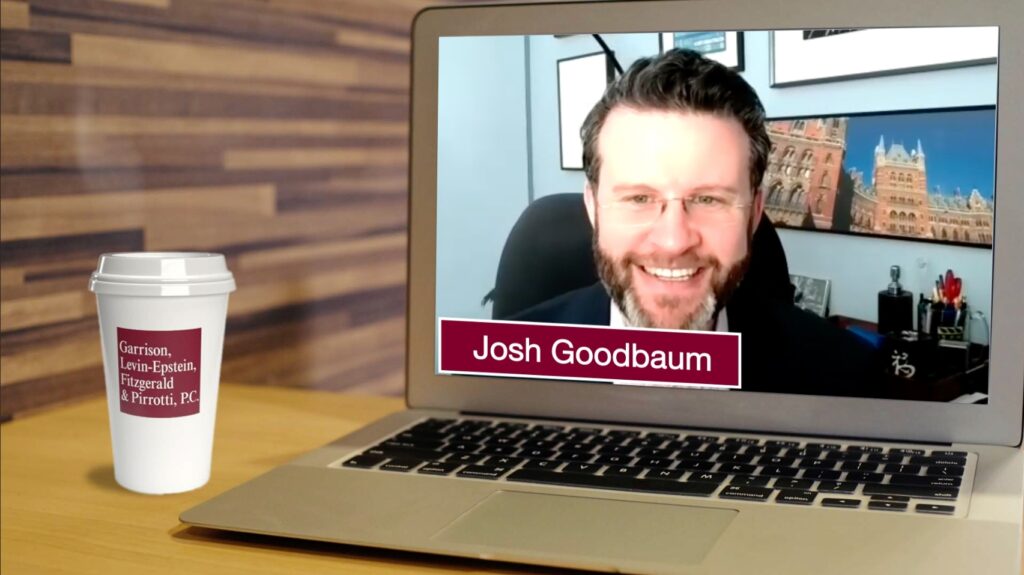May 31 2023
Josh Goodbaum: Hi, Amanda.
Amanda DeMatteis: Hi, Josh. What are we gonna talk about today?
Goodbaum: I want to talk about an employee who’s experiencing a hostile work environment. It might be sexual harassment, might be disability discrimination, might be age discrimination; but it’s feeling hostile because of comments from a supervisor or coworkers, because of a poor performance review, because of inequitable assignments, or for another reason. And this employee comes to you and says, “It’s just intolerable. I can’t work there anymore. I just don’t feel like I can go in to work on Monday. I just keep taking sick days. Help. What should I do?”
DeMatteis: Great question, tough one. It’s one that we see a lot, and it’s a delicate situation that needs to be handled strategically.
So, the first thing I do is try to make sure that this person is okay. Do they need the help of a mental health provider? Do they need a doctor to give an opinion that “you shouldn’t be going to work”? Remember, we have the Family and Medical Leave Act (FMLA) that can get a person that is in a situation that they feel as though they can’t stay in anymore out of work for a period of time, and their job is protected. So, maybe they just need to take a beat, right? Take a breath, get out of this place for a little while. And then you could think a little bit more clearly. So, that’s usually my first assessment of “Can we get this person out?”
Once the person is safe, both physically and mentally, of course, and is in a better place to make decisions, then we can talk about what the conduct that they are experiencing is that is leading them to feel as though they can’t go back and work in this place anymore. And this, like so many of the things that we talk about, Josh, is really fact specific, right? So all Connecticut employees can have a really different take or work experience as to what’s happening that’s making them feel as though they’re in this employment relationship that they just can’t go back to.
So I want to get a really detailed history from that person. What is the age discrimination that they’re experiencing? What is the sexual harassment that they’re experiencing? Tell me about the disability discrimination that you feel as though you are being subjected to at work. And then what we try to do is say, “Is this conduct bad enough? Is this work environment bad enough that no reasonable person in that particular person’s shoes could withstand it?” And if the answer is that no reasonable person within this particular person’s shoes could withstand this conduct, then we might be able to make out what’s called a constructive discharge.
And a constructive discharge is hard. The burden in proving that is on the employee, not the employer. So, the employee needs to prove, “This conduct that I was exposed to that my employer allowed me to work in was so bad that I couldn’t go back.” It’s a high burden. It’s not one that we take lightly.
Normally, in our cases, to prove an adverse employment action, an employee needs to be terminated. And then we say, “Okay, well, there’s this termination that has caused damages.” When it’s a constructive discharge, we have a different layer that we need to get through and get past in order to be able to have something actionable for a particular Connecticut employee.
So, what do you do if you find yourself in a hostile work environment that you don’t think you can tolerate anymore? Reach out to an employment lawyer. Remember, there are a lot of state and federal laws at issue here that could protect you. You might just need some time away from work to take that beat and take that breath. And the FMLA, hopefully, is available to you. And then you can talk with a seasoned employment lawyer as to whether or not the facts specific to your situation give rise to a constructive discharge. And if they do, maybe legally you don’t have to go back to that place.
Goodbaum: This is great information for people to have if they find themselves in really difficult situations. Thanks so much, Amanda, and thank you all for watching.
Posted by Garrison, Levin-Epstein, Fitzgerald & Pirrotti, P.C. in Commentary
Tagged Amanda DeMatteis, Hostile Work Environments, Joshua Goodbaum









